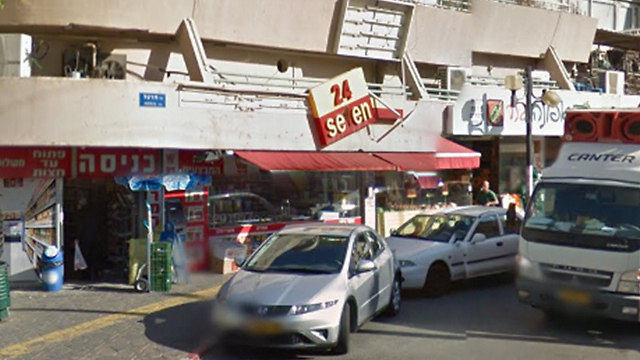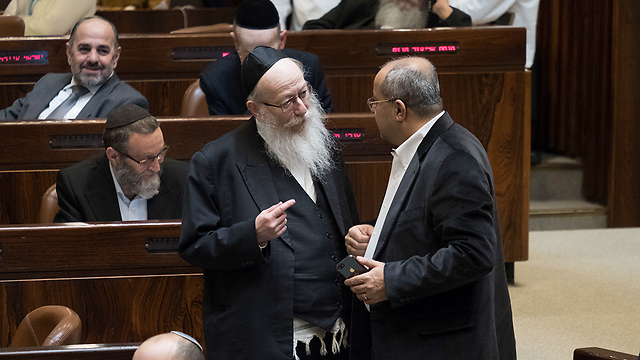
With Supermarkets Law, Haredim are finally speaking out
Op-ed: For years, the ultra-Orthodox watched the status quo they were promised by Ben-Gurion slip away, as the Jewish day of rest became just another weekday in the State of Israel, with the help of the Knesset, the media and the legal system; now, after suffering one blow after another, they’re no longer prepared to remain silent.
But the public debate around this issue points yet again to the great foolishness of public figures today compared to the wisdom of David Ben-Gurion, who authored the “status quo” letter on state and religion.
Here’s a moment on history: The famous status quo on state and religion came into being in 1947, following concerns that the Haredim would sabotage the attempt to establish the state. That year, the United Nations Special Committee on Palestine (UNSCOP) was asked to decide whether to recommend the establishment of a Jewish state in the Land of Israel, gathering testimonies from Jewish and Arab public figures.
Ben-Gurion, who was afraid that the Haredim would advise the committee against establishing the State of Israel, sent a letter to Agudat Yisrael rabbis, declaring the Jewish character of the future state.
Contrary to common belief, the famous letter did not include a commitment to exempt yeshiva students from military service, but rather four other issues. It pledged that kitchens in the future state's official institutions would keep kosher and that there would be full autonomy to the different Jewish denominations in the field of education. The letter further stated there Jewish law would be used to rule on matters of marriage and divorce. And most importantly, Ben-Gurion pledged to make Shabbat the official day of rest.
In 1951, the prime minister kept his word and passed the Hours of Work and Rest Law, which explicitly stated that the minister of labor is the only person who may permit Shabbat work, and only in unusual cases in which interruption of work is likely to seriously endanger public security or the defense of the state or seriously harm the economy.
Whether you like it or not, the Haredim are right both legally and morally. The law, which was never amended, does not permit holding soccer games, screening films in cinemas, opening shopping malls or operating public transportation on Shabbat.
For years, the Haredim watched the status quo slip away. Occasionally, they protested, like in 1984, when Petah Tikva’s Heichal Cinema began screening films on Shabbat. But the protests didn’t help, and the Haredim were forced to hold their tongue and watch the status of Shabbat being eroded.

For the sake of comparison, in the early 20th century, the secular municipality of Tel Aviv called on its residents to avoid watering their gardens on Shabbat, so as not to offend observant Jews and in order to maintain the Jewish character of the holy day. Today, on the other hand, Shabbat has become just another weekday in most of the country, with the help of the Knesset, the media and the legal system.
In 1969, the High Court of Justice decided to make a mockery of both the status quo and the Hours of Work and Rest Law, allowing the state-owned television network to broadcast on Shabbat. As a result, all public media outlets now operate on Shabbat, although their activity isn’t aimed at preventing serious harm to the defense of the state or to the economy, as the law states.
Let there be no doubt about it: In principle, I support the Gavison-Medan Covenant, which is willing to allow the operation of public transportation and recreation centers on Shabbat as long as shopping centers, for example, remain closed—from a socialist worldview of protecting workers’ day of rest.
But when the Haredim suffer one blow after another, year after year, it’s time for them to stop being silent and to enact the Supermarkets Law. Obviously, the law won’t prevent every case of Shabbat desecration in the state. It will just stop the drift until one covenant or another is accepted.
It’s time for the Haredim (who avoid core curriculum studies) to give the media and the public a short lesson in basic physics. As we know, according to Newton’s third law, when one object exerts a force on a second object, the second objects simultaneously exerts a force that is equal in magnitude and opposite in direction on the first object.
The Supermarkets Law isn’t an attempt at religious coercion. It’s simply the required and fair response to the long-standing disrespect toward the Haredi public.
The new law also serves as a wake-up call for politicians, the media and the High Court: If you exert exaggerated pressure on the Haredim, they will use the political system to apply counter-pressure. The problem is that all sides stand to lose in this event, apart from a number of politicians and public figures who specialize in whining.











